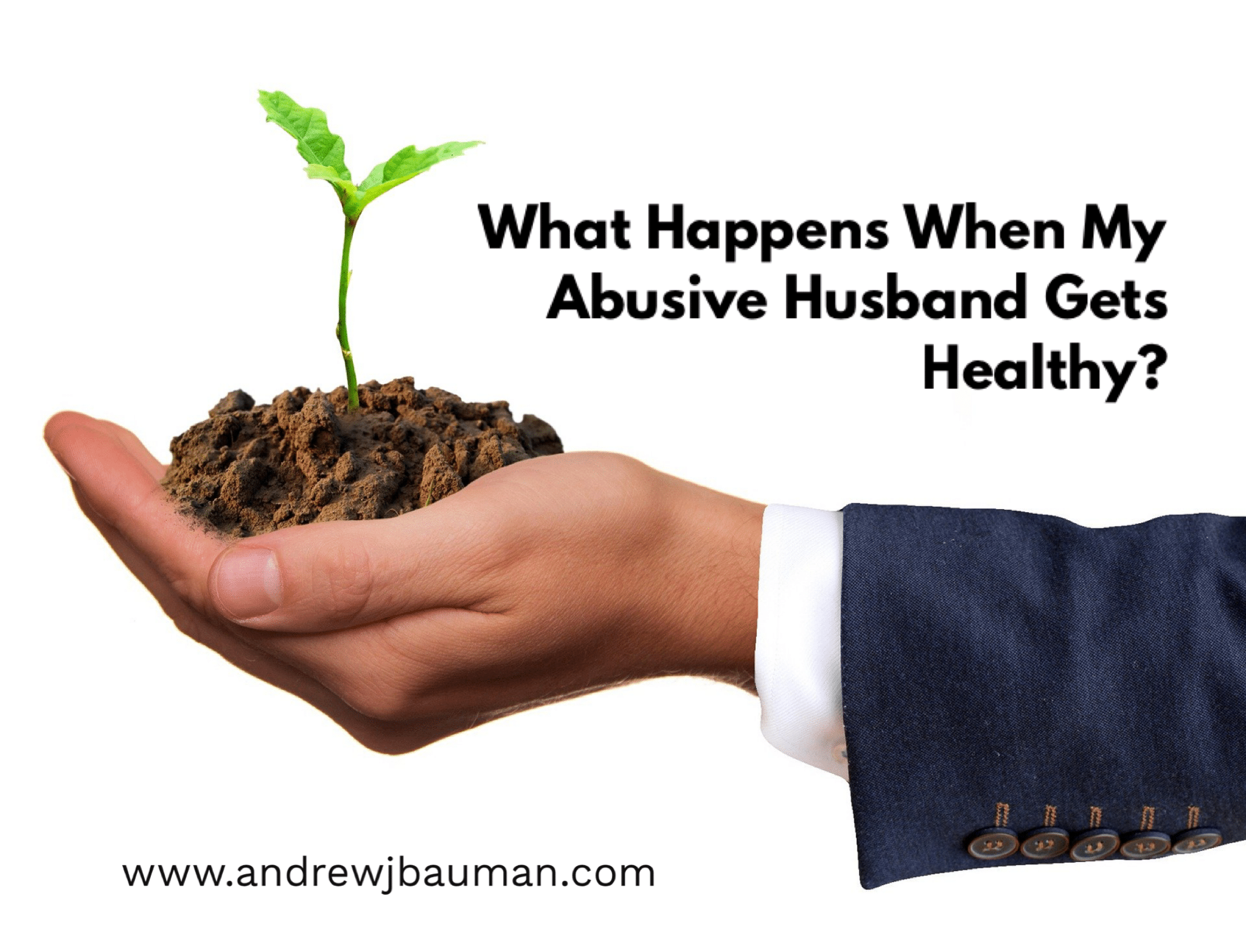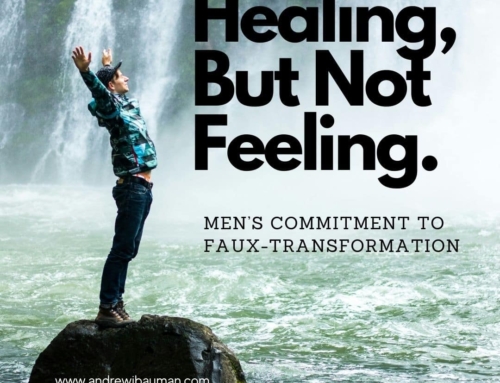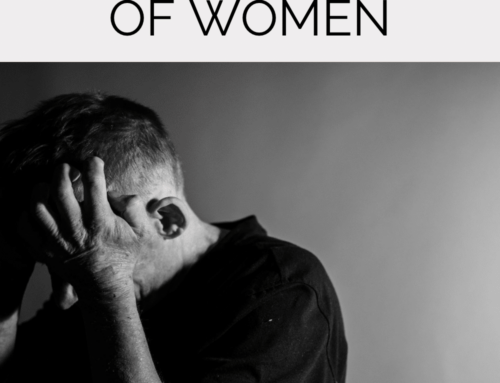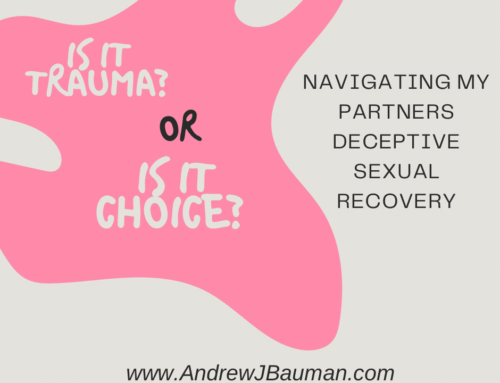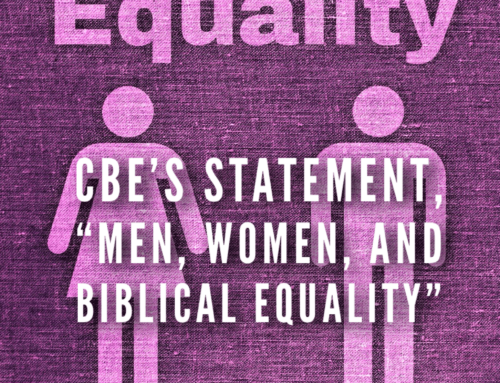It’s rare, but it happens. Abusive men can heal. But by rare, I mean the data is abysmal. Becoming safe and doing the work of healing only happens among roughly 1 in 10 abusive men.
Your abusive husband can heal when, and only when, he fully faces the depth of his darkness, the shame that often lurks in his shadows, his deep lingering insecurities, his overt and covert misogyny, his sexual and non-sexual addictions, his thirst for power and control, and his conscious and unconscious love for what patriarchy gives and has historically given him, and then finally, fully addressing and owning his own violence against women.
In light of this lengthy but non-negotiable list, I echo Christ’s shrewd question to the man at the pool of Bethesda in John 5:6, “Do you want to get well?” Really husband, do you? Because Jesus knows there is a high cost to getting well, and many men are not willing to suffer along the journey into true wholeness and healing of their violence.
For wounded spouses, it is crucial to accept the truth that your abusive husband can only begin to change the narrative and become a safe man if, and only if, he does this bloody work. This is the good news of the gospel, that resurrection is possible for all sinners who are willing to enter into their own crucifixion of self. The process isn’t easy, death never is; nor does it change the past consequences of his violence. However, it can change his future and his ability to have long-lasting, fulfilling intimate relationships.
As the victim of male violence, it’s important to note that this doesn’t automatically mean you need to stay around to be with him during his journey of healing. You are free to go. He broke the covenant of your marriage when he chose to be emotionally, physically, sexually, spiritually, or psychologically violent. He must travel this journey with you or without you in order to experience transformation in his own life, and it’s very possible that your presence may actually hinder his growth. If your supportive presence serves to lessen the pain of loss he must feel to truly change, then staying may be an obstacle to his healing rather than a building block.
Most men lack the courage to change (because it is so difficult) and loathe to own the many ways they have become emotionally, physically, spiritually, and sexually abusive.
The truth of your husband’s abusive identity is a humbling pill to swallow and requires a long winding road to freedom. Yet, without his full ownership and responsibility of his identity, there is absolutely no hope for lasting change, healing, and any reconciling to build a healthy relationship. Your husband must fully face all of his insecurities and any childhood wounds that have inspired him to inflict damage to the ones he says he loves the most.
If your husband is one of the few courageous men that take this brave journey of crucifixion and resurrection through his own Golgotha then you (as his partner) may be seeking some pointers as to how to navigate this new world.
Let me lay out the bumpy terrain that faces you—if your relationship can be mended and his violence is able to be integrated into a new and healthy relationship. (I use the phrase “violence integrated,” because a truly healthy relationship will never just “forgive and forget.” His past violence will forever be there: it must be talked about, discussed, and grieved, for the rest of the couples’ lives. Integration of the violence means neither of you will forsake the horror story that you have lived, but instead, you will use your story to help others avoid the same pitfalls. This history of violence must become integrated into who you are, into your story in a healthy way, not merely cut off and discarded. If your husband does not do this, then he is not well and he is not to be trusted.)
The Journey of Healing for the Abuse Victim
These categories of Safety, Stability, and Strength originate with Tom Pryde and his work at Psalm 82 Initiative. You must follow his work if you haven’t already! These are his categories, gleaned from my consulting session with him.
For true healing to take place after a victim has experienced abuse, it is vital to recognize that both the steps and the sequence of steps are fundamentally important. Both the husband and the wife need to be aware of this concept. If one or the other refuses to acknowledge the importance, then the healing process will be sabotaged at best, and at worst, completely destroyed.
Many husbands who are finally getting healthy are quick to exhibit frustration because their wives continue to have trigger responses when they show up and be human with their emotions (even without being aggressive or violent). In response to this irritation, I would argue that of course, your wife continues to experience triggers! That is what PTSD (Post Traumatic Stress Disorder) is all about. She has trauma responses directly related to years and years of YOUR ABUSE!
You caused her trauma response. Are you aware that it is now your responsibility to exhibit the courage required to create an environment of extreme safety for her? Are you willing to be radically kind, as your wife struggles with her own healing and begins a very long journey of forgiveness toward you?
Men, you must become keenly aware that in a sense you were driving the “car” of your relationship. Your dangerous and irresponsible driving habits crashed and totaled your family’s car. You are the near-murderer of your marriage, your family, your wife. Do you somehow think, when your wife chooses to remain in this marriage and to get back into your car, with you behind the wheel, that her body won’t be instinctively terrified that you might crash again!? She is petrified—scared to death that you will once again steal her power, her choice, her strength, and her voice.
Of course, she is scared. If she weren’t, it would be strange and unhealthy. Your number one goal (at this point, your only goal) for the remainder of the life of your relationship is to provide her with safety.
#1 – Safety
Women, you can know your man is beginning to heal when he faithfully provides you with safety in every sense of the word. When his actions match his words. When there’s no dissonance between promises and follow-through. When he’s willing to do whatever it takes to make sure you feel safe, on your terms, regardless of whether he’s getting everything he wants. This safety means that you no longer feel hesitant or afraid to use your voice and state your opinion. Safety means he can hear you, see and bless your differences, and you feel absolutely no threat or fear of any form of pending harm or possible payback.
Men, your wife can only begin to heal if you take extreme ownership of your history, and that you have historically created an unsafe environment for her. You must recognize that it is now time for you to knowingly, purposefully, and sacrificially create a safe zone for her, every time—all the time. Remember, she gets to decide when she feels safe, not you. She gets to communicate when that sense of safety has become a reliable norm, not you.
Only when safety has become the predictable, ongoing reality, can your relationship heal and move forward. The next stage your husband must commit to providing is stability.
#2 – Stability
After safety has been firmly established, it’s time for a long season of stability. During the stability stage, both victim and abuser should begin to develop differentiation and autonomy. This means, women, that he is no longer acting in ways that control, manipulate, deceive, or dominate you. If stability is being successfully established, you should feel safe and supported to determine your own path and choices. Your husband will no longer be clinging to power and control over you. As this stability is cultivated and sustained over time, independence and healthy differentiation become the relationship’s new normal.
In order to establish stability, it is absolutely essential that the victim’s safety has been established beyond survival mode. Does she have stable housing? Is she scrambling for groceries, childcare, utility bills? Does she have a safely functioning, properly insured vehicle to drive? Is she surrounded by supportive, spiritually stable friends, family, and leaders who are encouraging her to maintain boundaries while her husband does the hard work? Is her daily existence as free as possible from physical, financial, spiritual, and emotional threats?
Men, if you are separated during this stage, it is crucial that you financially support your wife (and any children) to provide her with stability from a distance, with no strings attached. You do this because it is the right thing to do, not because you’re getting something out of it. During the stability stage, her safety becomes increasingly normalized, allowing her stability to grow. Slowly and gradually, this builds the potential for layers of trust to grow into a new, healthy relationship as you prove that your transformation is genuine. Finally, the third season is that of strength.
#3 – Strength
In this final stage of healing, women who have suffered male violence are finally in a place to safely reflect on how you ended up in an abusive relationship in the first place. You now have a strong sense of self, so you can reflect on your own story, your own childhood wounds, the theological underpinnings that laid a foundation for you to become an accommodating target, and more. From a place of strength, you are better prepared to more clearly see any early dynamics that contributed to becoming drawn into an abusive relationship. You are strong enough to acknowledge that your behavior hasn’t caused any of your abuse and that the responsibility lies fully on your husband, yet you can now begin to take ownership of the ways your silence and compliance gradually turned you into someone you no longer want to be.
In this third stage, you have grown strong enough to manage this process, and stable enough to recognize any new patterns of abuse from your partner in real-time. During this stage, you become comfortable with your new-found glory and power (and if he continues to do the work of healing, so does your husband).
Forgiveness pushed prior to the stage of strength can feel cheap and dirty. Waiting until now to address forgiveness allows the process to become deeply true. Mutuality can finally be experienced after safety and stability have been established, and both partners walking in strength have become normalized and blessed.
As you continue this painfully noble quest for healing and transformation, I leave you with this prayer from the Catholic Health Association of the United States,
“Loving God, you are the author and sustainer of our lives. You know the anguish of the sorrowful, you are attentive to the prayers of the brokenhearted. Hear your people who cry out to you in their need; strengthen their hope in your lasting goodness.
We pray today for those who have died because of violence… Draw them to yourself; let your face shine upon them. May they be greeted with choirs of angels and experience your eternal peace and joy.
Be near to all those who have been touched by violence: those who have been hurt, lost their loved ones or lost their sense of security. Be for them a steady comfort and safe resting place.
Soften the hearts and steady the minds of those who would do violence to others. May hate be replaced with love, violence with peace and darkness with your light.
Amen.”
